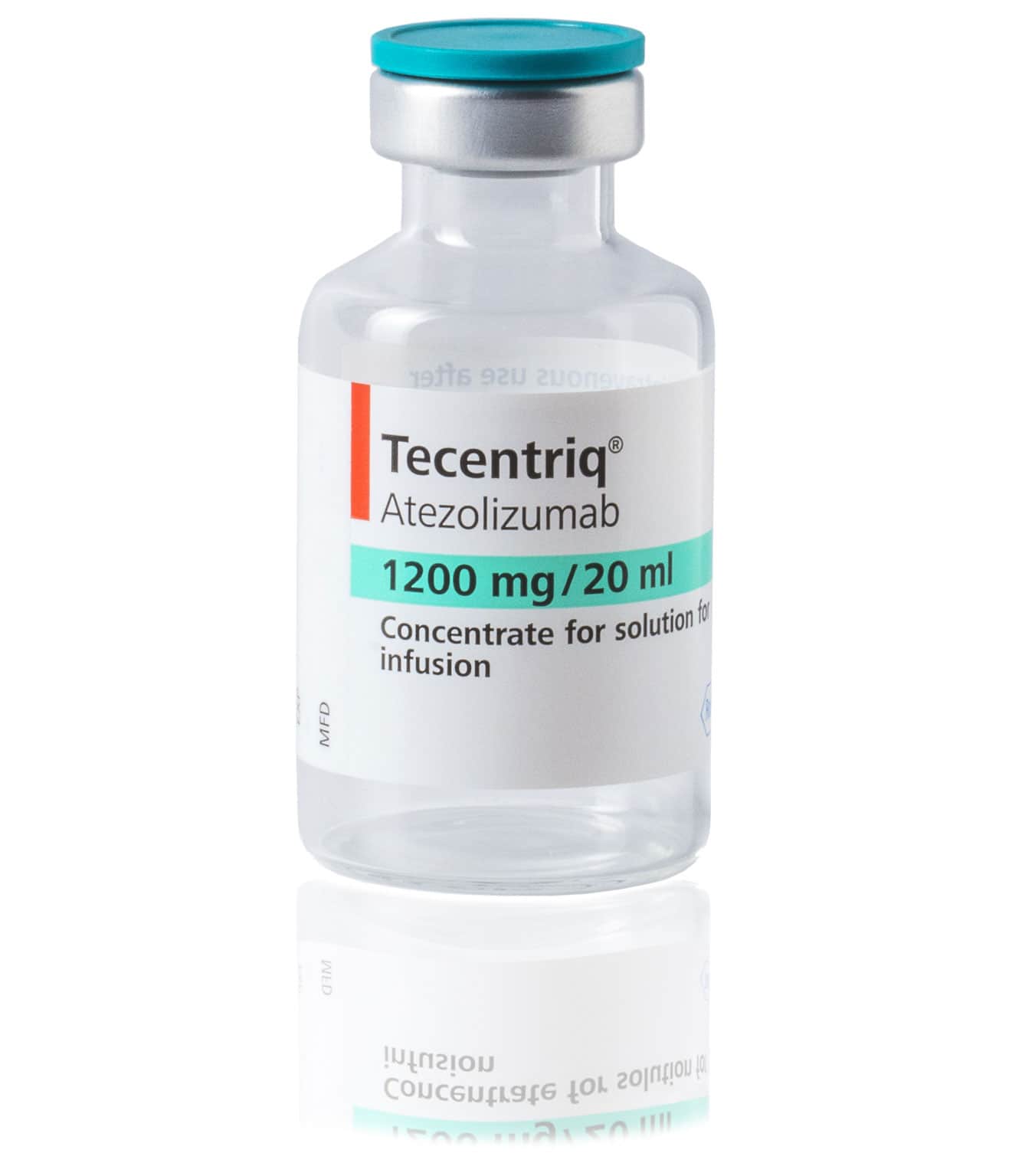
Roche’s efforts to bolster its checkpoint inhibitor Tecentriq have paid off in melanoma, following a late-stage combination success.
Tecentriq (atezolizumab), in combination with Genentech’s MEK-inhibitor Cotellic (cobimetinib) and BRAF-inhibitor Zelboraf (vemurafenib) reduced the risk of disease progression or death in BRAF-positive melanoma compared to the placebo plus Cotellic/Zelboraf arm.
Although Roche has not revealed the detailed data from the phase 3 study – named IMspire150 – it has said that the therapy combination demonstrated a clinically meaningful improvement in progression-free survival.
The safety and tolerability profile was also consistent with the known safety profiles of all three medicines.
“By combining a cancer immunotherapy with targeted therapies, we hope to offer a new approach that improves outcomes for people with advanced, BRAF-mutant melanoma.” said Levi Garraway, chief medical officer and head of global product development.
“We look forward to discussing the results with health authorities around the world,” he added.
The positive results will be a welcome burst of hope for Roche after Tecentriq failed to hit the mark in an earlier study testing Tecentriq in combination with Cotellic as a third-line treatment option for colorectal cancer.
Those results had cast a shadow on Roche’s extensive plans for the Tecentriq/Cotellic combination, especially the Imspire150 study. However, it seems that the addition of a BRAF-inhibitor has countered those earlier results, and a pay off in the first-line setting could generate impressive sales for Roche.
For Roche, it looks like combination treatments are paving the way for success, after its Tecentriq/chemotherapy combo scored approval from the FDA earlier this month as a first-line treatment for non-small cell lung cancer (NSCLC).
The myriad of combinations in development could help Roche to take more market share from Merck & Co’s class-leader Keytruda (pembrolizumab), which has transformed the standard of care for a number of cancers, particularly NSCLC.
Roche also has plans to file a Tecentriq/Avastin combination treatment for liver cancer. A recent positive trial readout supports these plans as Roche looks to boost Tecentriq, which was a latecomer to the checkpoint inhibitor market.
The full, detailed results are set to be presented at an upcoming medical meeting, and Roche is also planning to take them to global drug regulators, including the FDA and EMA.




